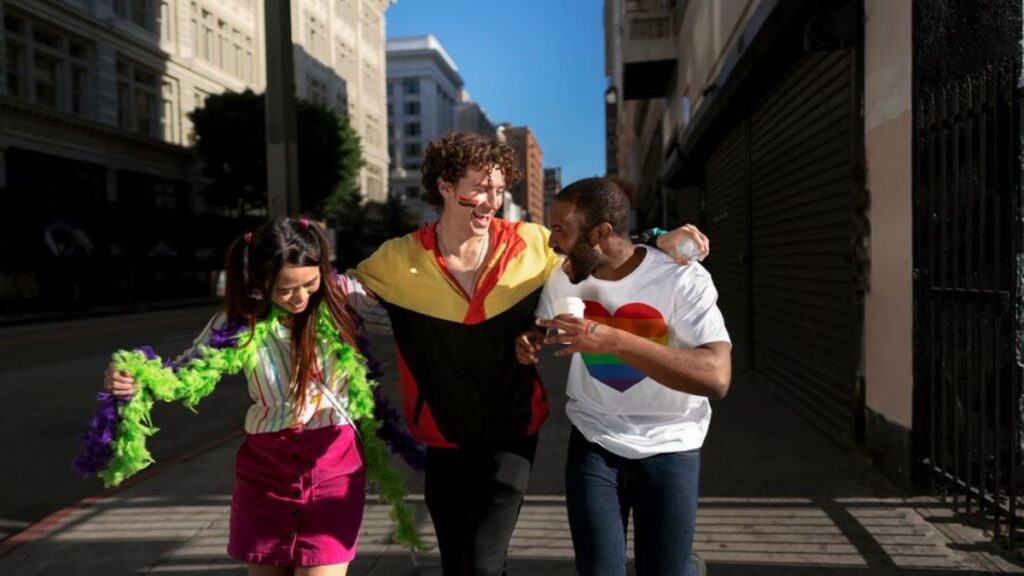Yuppow is more than just a buzzword; it’s a cultural phenomenon that’s reshaping the way we live, work, and interact with each other. Imagine a world where individualism meets community spirit, blending ambition with authenticity. This vibrant movement is sweeping across various sectors of society, from creative industries to corporate environments. It reflects a shift in values that prioritizes connection over competition and purpose over profit. As we dive into the heart of yuppow culture, we’ll uncover its roots and explore how it’s making waves in today’s fast-paced landscape. Get ready to discover real-life examples that showcase this transformative trend!
The Rise of Yuppow Culture
Yuppow culture has emerged as a vibrant response to modern societal shifts. Fueled by technology and connectivity, it embodies a lifestyle that prioritizes experiences over material possessions.
This cultural shift resonates particularly with younger generations. They reject traditional benchmarks of success, like owning homes or accumulating wealth. Instead, they seek authenticity and fulfillment in everyday moments.
Social media plays a crucial role in this rise. Platforms amplify yuppow ideals, showcasing adventures that inspire community engagement and collective celebration.
Consumers are now gravitating toward brands that embody these values—companies promoting sustainability, inclusivity, and social responsibility capture the attention of today’s discerning buyers.
As cities become more diverse hubs of innovation, yuppow thrives within urban landscapes where creativity meets collaboration. This dynamic environment fosters unique opportunities for personal growth and connection among individuals who embrace change.
Yuppow in the Workplace
The workplace is evolving, and yuppow culture plays a significant role in this change. Professionals are embracing flexibility and creativity more than ever before. Traditional 9-to-5 structures are giving way to remote work and hybrid models.
Companies that adopt yuppow principles often focus on employee well-being. They prioritize mental health initiatives and promote work-life balance. This shift leads to increased job satisfaction among staff.
Collaboration tools have surged in popularity as teams seek innovative ways to connect regardless of location. Slack, Zoom, and Asana are just a few platforms enabling seamless communication.
Moreover, there’s an emphasis on personal branding within the workplace. Employees now curate their online presence while aligning with company values. This synergy fosters loyalty and community among team members.
Engagement through diverse projects allows individuals to explore passions alongside professional goals—a hallmark of yuppow culture that inspires growth at all levels.
Examples of Yuppow Brands and Companies
Several brands have embraced the yuppow culture, transforming their approach to engagement and consumer interaction.
Take Patagonia, for instance. This outdoor apparel company advocates environmental sustainability while appealing to a socially conscious audience. Their commitment resonates deeply with today’s values.
Then there’s Warby Parker. By providing stylish eyewear at an affordable price, they’ve tapped into the desire for accessibility without sacrificing quality. Plus, their buy-a-pair-give-a-pair model aligns perfectly with yuppow ideals.
Another notable example is Tesla. The electric car manufacturer has revolutionized how we think about transportation and sustainability. Its innovative technology speaks directly to a market eager for change.
Consider Airbnb’s rise in popularity as it redefined travel experiences. By promoting unique stays over traditional hotels, they’ve created a community-focused platform that embodies the essence of yuppow living—personal connection through shared experiences.
Impact on Society and Consumer Behavior
Yuppow culture has profoundly influenced society and consumer behavior. It celebrates individuality, self-expression, and the pursuit of personal goals. As a result, consumers are increasingly seeking brands that reflect their values rather than just products.
This shift drives businesses to adopt transparent practices. Companies now emphasize authenticity in marketing. They engage with customers on platforms where they share their experiences and opinions.
Social media plays a vital role here, amplifying voices and allowing for real-time feedback. Brands must be agile to adapt quickly to changing preferences.
Moreover, yuppow fosters a community-oriented mindset among consumers. Shopping isn’t just transactional; it’s about belonging to something bigger than oneself. People lean towards brands supporting social causes or sustainability initiatives.
Such behaviors reshape market dynamics, compelling companies to innovate continually while staying true to the essence of yuppow culture.
Criticisms and Controversies Surrounding Yuppow
Yuppow culture isn’t without its critics. Some argue it fosters elitism and exclusivity. The emphasis on trends can alienate those who may not have the means to participate.
Additionally, there’s concern that yuppow promotes a superficial lifestyle. Critics suggest this focus on image overshadows deeper values like community and authenticity.
Environmental impacts are also a topic of debate. Fast fashion brands associated with yuppow often prioritize profit over sustainability, leading to increased waste and resource depletion.
Moreover, some question whether the drive for constant innovation is genuinely beneficial or merely a trend-driven cycle that leaves people feeling exhausted and unfulfilled.
These controversies prompt ongoing discussions about what yuppow truly represents in today’s society. As awareness grows, so does scrutiny regarding its implications for both individuals and communities at large.
Conclusion: The Future of Yuppow Culture
The landscape of yuppow culture continues to evolve, influencing various aspects of daily life. As younger generations embrace this movement, we see shifts in everything from workplace dynamics to consumer preferences.
Yuppow encourages an ethos of authenticity and connection. Brands that align with these values are likely to thrive. The future will likely witness more companies adopting strategies that resonate with the core principles of yuppow.
As society adapts, challenges may arise. Criticisms surrounding materialism or exclusivity can’t be ignored. Yet, they also present opportunities for growth and introspection within the movement itself.
The ongoing dialogue around yuppow could lead to a more inclusive interpretation of what it means to live authentically in today’s world. Embracing change might just unlock new avenues for creativity and collaboration.
In navigating this cultural shift, individuals and brands alike have the chance to redefine success on their terms—rooted in genuine connections rather than mere appearances. The journey ahead is filled with potential as yuppow continues its rise across communities worldwide.
